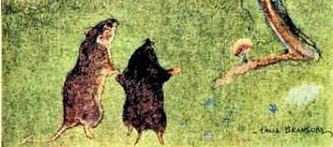
These lyrics depict a contemplation of the speaker’s body and its relationship to reality. It conveys a sense of confinement, disillusionment, and a desire for liberation. Here’s a breakdown of the lyrics:
“My body is a prison of hard and cold facts.”
This line suggests that the speaker feels trapped within their physical existence, limited by the rigid and unyielding nature of factual reality. It conveys a sense of being confined or constrained.“My body is a reality trap, final and constructed.”
Here, the speaker describes their body as a trap that encapsulates them within the bounds of reality. It implies that this constructed reality is fixed and unchangeable, further emphasizing the feeling of confinement.“My body is a form of the truth of which there are infinitudes (mostly not).”
This line explores the concept of truth and its subjective nature. It suggests that the speaker’s body represents a particular version of truth, but acknowledges that there are countless other truths that may not align with their own. It hints at the complexity and diversity of perspectives.“Let us sing here now. Let us forgive by forgetting.”
These lines express a desire for release and a fresh start. The act of singing and forgiving through forgetting implies a longing to move beyond the burdens of the past and find solace in the present moment.“Let me tell that story, one of many, where I am done with teaching and learning, where I am ripe with forgetting.”
The speaker desires to share a personal story that signifies a departure from the process of teaching and learning. They seek a state of being where they are ready to let go and embrace forgetting as a means of growth and renewal.“In a tree-framed pasture, I am watching the undulating flight paths and swoonings of pileated woodpeckers as they crisscross the field.”
Here, the imagery shifts to a tranquil scene in nature. The speaker finds solace in observing the graceful movements of pileated woodpeckers, suggesting a temporary escape from the confines mentioned earlier.“The crows ‘caw’ at them in jealous derision.”
This line introduces an element of conflict and jealousy. The crows’ reaction to the woodpeckers’ flight symbolizes a negative response from others who may envy or resent the speaker’s liberation or freedom.“It occurs to me the only certainty I can guarantee is this: ‘We are living in an age that calls darkness light.'”
In this final line, the speaker reflects on the nature of certainty and the deceptive tendencies of their time. It implies that in the present era, truth and falsehood can be blurred, and what may appear as light or enlightenment could, in fact, be darkness or ignorance.Overall, these lyrics explore themes of confinement, disillusionment, longing for liberation, and the subjective nature of truth. They convey a sense of yearning for freedom from the constraints of reality and a desire to find solace and renewal through forgetting and embracing the present.
It is a noble effort, but it falls down in making the connections the poem makes internally with meaning. I ignores all the conventions of poetry that are there to catch the web of meaning that is the platform for the poem. Not even close. I think of ChatGPT ‘poetry’ as a simulacrum–a golem and a homunculus.

Permalink //
intriguing ending …
Permalink //
The poem is capped on both ends, bookended with lyrics from Arcade Fire’s “My Body Is a Cage”.
I had ChatGPT explicate it for us all and I will post this as an update above.
Permalink //
Yeah. Further hmmmm. Although Chat falls apart, you can glimpse some possibilities, right? (I think?)
Permalink //
It helped me some in gaining a reflective distance. I might be said to have understood myself more. Even a little of that reflective distance can be helpful to our yound writers.
Permalink //
If you had not said that the explanation of the poem was generated by ChatGPT I would not have known. Picking out lines and offering an interpretation, however general it may be, was interesting, even if it did not capture your intent.
It seems to me that this demonstrates how AI will add a flood of noise into an already crowded space.
Permalink //
The comment about noise is so true. So…is ChatGPT and all the generative tools just makeing more noise, amplifying for no good reason or is it…helpful?